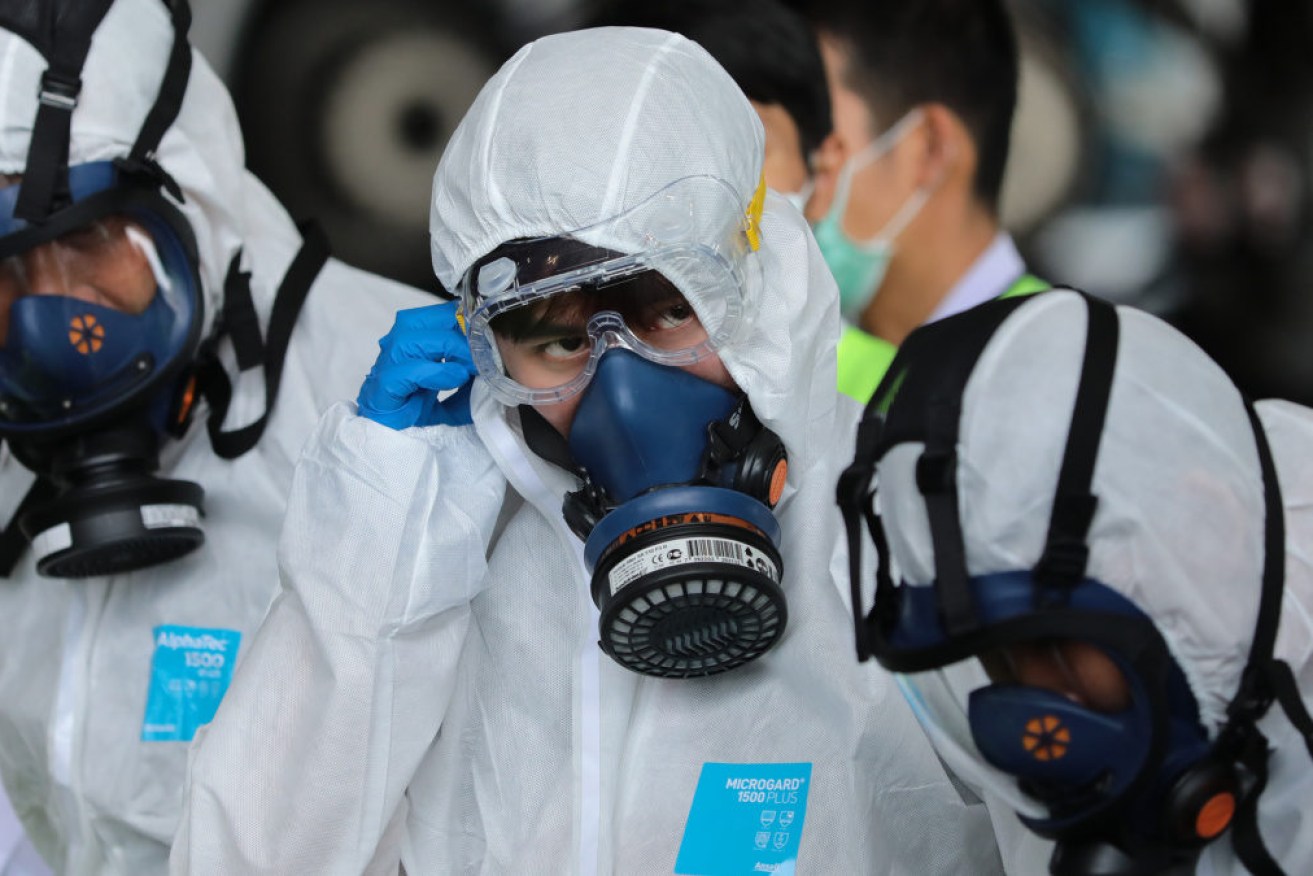‘Extreme measures’: States of emergency declared in Victoria, ACT


The ACT will become the second jurisdiction in Australia to declare a state of emergency due to the coronavirus, joining Victoria. Photo: Getty
Victoria and the ACT have declared states of emergency in response to the coronavirus pandemic.
In taking the unprecedented move – which applies from midday on Monday – Victorian Premier Daniel Andrews said the state of emergency would remain for “as long as it needs to be” to combat COVID-19.
ACT Chief Minister Andrew Barr will also declare a public health emergency in Canberra. It comes after health authorities confirmed the national capital’s second case of coronavirus – a man in his 30s who tested positive on Sunday.
Mr Barr said the declaration would give Canberra’s chief health officer more powers to enforce isolation and quarantines.
“I want to be clear at this point … any directions under the public health act would be the last resort measure,” he said.
Also on Tuesday, the Tasmanian government said everyone arriving in the state would have to provide contact details as part of measures to combat the spread of coronavirus.
They will also need to fill in an ‘arrival card’ that will be rolled out at ports and airports from Tuesday, Premier Peter Gutwein said.
Filling out the card will be mandatory and allow the state government to pass on health advice if needed.
Mr Andrews said Victoria was taking its drastic action “after agreement from the National Cabinet that includes the Prime Minister and all premiers and chief ministers, to contain the spread of coronavirus as much as we can”.
“Make no mistake, the next few weeks and months will be tough for everyone, but we’re doing what is necessary to protect Victorians,” he said.

Victorian health minister Jenny Mikakos, with Mr Andrews, said COVID-19 was the biggest public health challenge in our lifetime. Photo: AAP
“It is an offence under the Public Health and Wellbeing Act to not comply with the orders that have been made,” he said.
“Those orders, in the first instance, relate to that mandatory – not optional in any way – mandatory home quarantine or at a hotel, if you are not a resident.”
The special powers have been declared to enforce the 14-day isolation requirements for all travellers coming into Australia, he said.
The self-isolation sanction was declared by Prime Minister Scott Morrison on Sunday.
Victoria’s state of emergency will initially run for four weeks, but is likely to continue beyond then.
Under the move, authorised officers can detain people, restrict movement and prevent entry to premises to protect the public.
Non-essential mass gatherings of more than 500 people such as cultural and sporting events and conferences, are banned.
Institutions such as the National Gallery of Victoria, State Library, and museums are temporarily closed, while the Melbourne Comedy Festival and Food and Wine Festival have already been postponed.
“This is about flattening the curve,” Mr Andrews said.
Victoria’s coronavirus tally sits at 71 after 14 new cases were confirmed overnight. There are 297 confirmed cases across Australia.
Victoria’s Department of Premier and Cabinet said the drastic measures meant that “gatherings that are deemed essential”, including public transport, food markets and workplaces, will remain open – for now.
“Schools, TAFEs and universities will remain open for now but have been asked to restrict mass gatherings such as assemblies and lectures of over 500 people,” it said.
“At this stage, spaces or locations where 500 or more people may be in transit, such as Federation Square or Bourke Street Mall, are excluded from the ban on mass gatherings.
“However, if it is deemed necessary to protect public health, the powers can also be used in future to quarantine entire suburbs, businesses or professions – rather than just individuals.
On Sunday, Victorian authorities recommended the public have a two-week stockpile of food – but no more – in preparation for a major coronavirus outbreak in the state.
Mr Andrews said it would be “sensible” to have extra staples on hand as the number of cases of COVID-19 rose.
But he warned against panic buying as it would impact those “most at risk of being quite seriously ill”.
“It is sensible to try to have some of those (staples) on hand, more than you would normally have,” Mr Andrews said on Sunday.
“But if everybody goes out and buys not two weeks worth of staples but two months worth, the shelves will be empty and the only people who suffer then are vulnerable people who might not have got to the shops, or can’t go to four different supermarkets and get the basics that they need.”
Supermarkets Coles and Woolworths, meanwhile, have imposed purchasing limits on staples such as rice, flour, pasta, toilet paper, tissues and hand sanitiser to two units per customer.
-with AAP








